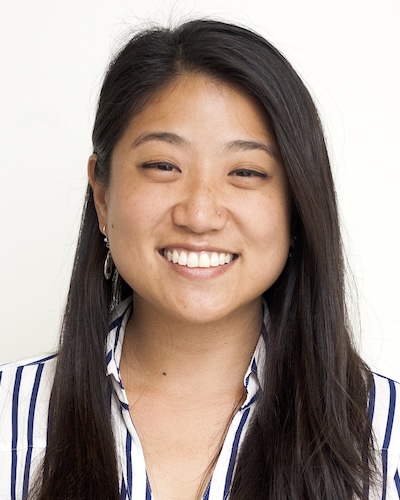USC’s Student Run Clinic: Providing Care to the Underserved in Skid Row

November 13, 2017
by Erika
One of my top 3 enriching experiences in this program didn’t take place in the classroom and wasn’t at fieldwork. It was in a men’s shelter located in the middle of Los Angeles’ Skid Row. It was here where I met Ben*, a man who was living at the shelter that came to see us at the Student Run Clinic because he was complaining about itchiness on the bottom of his feet.
Hold up, what is Student Run Clinic?
Student Run Clinic is a student run organization that provides comprehensive healthcare to the homeless, chronically ill, and underserved populations in Skid Row. We work in an interprofessional team alongside students from USC’s Medicine, Physician Assistant, and Pharmacy programs operating two clinics monthly — one at John Welles CH (JWCH), a Federally Qualified Health Center (FQHC) one Saturday morning a month as well as a mobile clinic that operates out of a men’s shelter on one Tuesday evening a month.
Gotcha, back to Ben.
Ben came to see us on a Tuesday evening in which we set up shop in the men’s shelter he was staying at. As part of the clinic protocol and as the OT student, I was the first to greet Ben and introduce him to what he was going to experience throughout the course of the night. I then gathered his social history — asking him questions about life before living in the shelter, how he occupies his time during the day, if he has plans for what’s next, who his support system is, what his current employment status or past employment history is, etc. We got to talking and because clinic was running a little slow, I had time to chat him up more than usual.
Ben was a biking barber. He spent his days making money cutting hair biking across Downtown Los Angeles and was proud of it. A couple weeks before I met him, he had traveled to a bike race in Northern California and during that time, his landlord rented out the apartment he was living in without telling him leaving him homeless when he came back to Los Angeles. Thus, his current situation of living in the shelter. Despite these setbacks, Ben was upbeat in demeanor — honoring the hustle, doing what he can do to work as much as he can, confident and capable. I really enjoyed meeting him. I asked all my curious questions about being a biking barber and he asked me about being a student. ::knock knock knock:: My time was up.
After I left the room, I briefly summarized what I learned to the team (2 med students, 1 pharm student, and 1 PA student). It was there turn now to go in and ask their questions specific to their specialties. Med and PA took Ben’s vitals and administered the physical exam on his feet. Pharmacy inquired about any current medications he was taking, whether he was satisfied with those medications, if the medications affect the itchiness on his foot, etc. :: knock knock knock:: Their time was up.
While Ben was speaking with the other students, I was busy consulting our faculty preceptor, Dr. Pitts about everything I learned about him to work through the case. She helped me clinically reason through the case and ensure we have all the information we need to inform the team on a potential treatment recommendation. At the time when I met Ben, Dr. Pitts proctored both clinics but now Dr. Erin McIntyre has taken over mobile clinic and Dr. Pitts focuses on Saturday clinics at JWCH. If there’s anything I can be grateful for in volunteering and serving on SRC board, it’s the unwavering guidance and experience of our faculty mentors.
Once all the other students returned from speaking with Ben, we engaged in “the Huddle” — the point in the night where we share all the information we learned about the patient and as a team, create a problems list and potential treatment plan accordingly. Once this was agreed upon, our attending physician, Dr. G, came in to hear us present all of our findings. As an educator and mentor, Dr. G provided us with feedback, constructive criticism on where we may have had some holes in our questioning or evidence, and a cohesive understanding of any next steps.
While Ben was a rather simple case of determining whether he had dry skin or a fungal infection, the experience was so much more than that.
- I was able to listen to Ben’s story firsthand and gain a tiny ounce of understanding of his experience living in Skid Row.
- I thought critically in an OT lens and assessed his living conditions, daily occupations, and motivation to inform us about his foot and skin condition and his ability to follow through on treatment.
- I was able to make new friends in other professions, delve into each others healthcare lens, and understand how each profession contributes to a primary care model.
- Lastly, I was able to advocate for Ben in providing the other health care professionals insight into Ben as a human outside of being a patient.
Being a part of Student Run Clinic has been a true privilege and one I would never pass up for anything in this program. It’s an experience that is unlike any other and if you’re currently a student in any of USC’s programs (Medicine, Physician Assistant, Pharmacy, or Occupational Therapy), I would encourage you to volunteer. You won’t regret it.
*All names mentioned in this blogpost are pseudonyms.
⋯
Next by tag Getting Involved ⟩
⋯





